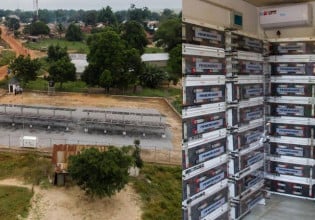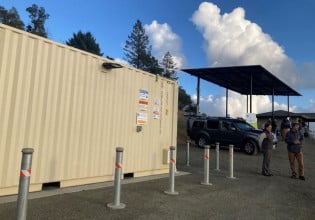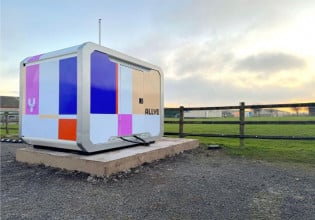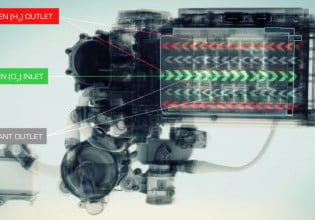Fraunhofer CSE and Fraunhofer ISE Joint Testing Venture Ranks Performance of PV Modules
The Fraunhofer Center for Sustainable Energy Systems (Fraunhofer CSE) in Boston, and the Fraunhofer Institute for Solar Energy Systems (Fraunhofer ISE) in Freiburg, announced the release of the first report from their PV Durability Initiative (PVDI). PVDI's robust testing protocol generates scores that enable the credible rating of PV modules based on their likelihood to perform reliably under different kinds of stress. The report provides solar PV financiers, developers, and other industry players with the first widely available quantitative dataset to assess long-term durability.
In this first round of testing, five of the top ten Si-crystalline module producers were selected to be tested. The results show a substantial spread in thermal cycling durability, while all tested module types proved very good stability in the damp heat/UV test sequence. Though participants have the option to remain anonymous, the data generated becomes a permanent part of the ongoing PVDI dataset for continuing comparison with the rest of the field as well as future modules. These durability ratings for commercial PV modules will enable PV system developers and financiers to assess the technical bankability of PV modules and make more informed deployment decisions. For manufacturers, the data also encourages continuous improvements toward more durable modules.
"The potential for PV modules to fail in advance of their intended service life is a key factor that increases the perceived risk, and therefore the cost, of funding PV installations," explains Geoffrey Kinsey, Director of PV Technologies at Fraunhofer CSE. "PVDI addresses this issue." PVDI rates PV modules on a scale of zero to five relative to their likelihood to perform reliably with regard to the performed tests. Modules are subjected to accelerated stress testing intended to approach the wear-out regime for a given set of environmental conditions. The modules are rated for both performance and safety.
In parallel with the accelerated tests, modules are subjected to long-term outdoor exposure; the correlation between the accelerated tests and operation in the field will be determined over time. The accelerated test component in PVDI is an extension of familiar reliability stress tests and includes combined effects. Where possible, the program requires that commercial modules be purchased on the open market, to avoid selection bias.
Current tests according to IEC and UL protocols address the question of early field failure and safety of solar PV modules, but do not yet yield information about durability – the rate of degradation of power output. PVDI's expanded, comprehensive indoor and outdoor testing addresses durability, exceeding the demands of IEC standard module certification with extended accelerated testing, UV irradiation, damp-heat with positive and negative voltage bias as well as dynamic and static mechanical stresses at different temperatures. Also included are typical stresses such as temperature cycling, humidity-freeze, and damp-heat, which have been extended in order to come closer to the actual stress on a module.
"Accelerated innovation cycles as well as a highly increased cost pressure throughout the PV industry prove qualification beyond basic standards to be absolutely essential" says Dr. Harry Wirth, Director Division Photovoltaic Modules, Systems and Reliability at Fraunhofer ISE in Freiburg.
PV module manufacturers, system developers, and financiers can participate in the PVDI program.






